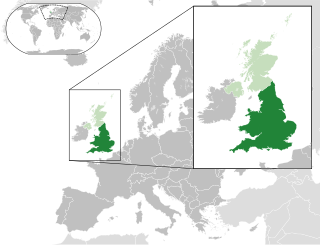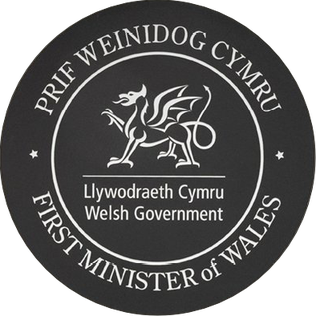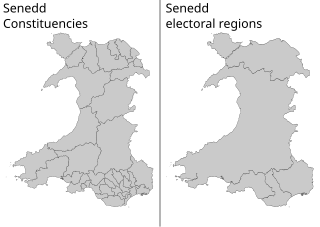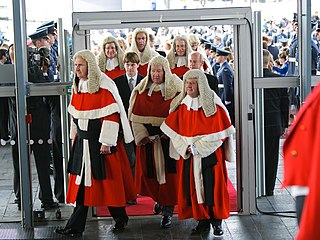Related Research Articles
The legislatures of the United Kingdom are derived from a number of different sources. The Parliament of the United Kingdom is the supreme legislative body for the United Kingdom and the British overseas territories with Scotland, Wales and Northern Ireland each having their own devolved legislatures. Each of the three major jurisdictions of the United Kingdom has its own laws and legal system.

The United Kingdom has three distinctly different legal systems, each of which derives from a particular geographical area for a variety of historical reasons: English law, Scots law, Northern Ireland law, and, since 2007, calls for a fourth type, that of purely Welsh law as a result of Welsh devolution, with further calls for a Welsh justice system.

A member of the Senedd is a representative elected to the Senedd. There are sixty members, with forty members chosen to represent individual Senedd constituencies, and twenty to represent the five electoral regions of the Senedd in Wales.

The administrative geography of the United Kingdom is complex, multi-layered and non-uniform. The United Kingdom, a sovereign state to the northwest of continental Europe, consists of England, Northern Ireland, Scotland and Wales. For local government in the United Kingdom, England, Northern Ireland, Scotland and Wales each have their own system of administrative and geographic demarcation. Consequently, there is "no common stratum of administrative unit encompassing the United Kingdom".

The Senedd, officially known as the Welsh Parliament in English and Senedd Cymru in Welsh, is the devolved, unicameral legislature of Wales. A democratically elected body, it makes laws for Wales, agrees to certain taxes, and scrutinises the Welsh Government. It is a bilingual institution, with both Welsh and English being the official languages of its business. From its creation in May 1999 until May 2020, the Senedd was officially known as the National Assembly for Wales and was often simply called the Welsh Assembly.

A legislative consent motion is a motion passed by either the Scottish Parliament, Senedd, or Northern Ireland Assembly, in which it consents that the Parliament of the United Kingdom may pass legislation on a devolved issue over which the devolved government has regular legislative authority.

England and Wales is one of the three legal jurisdictions of the United Kingdom. It covers the constituent countries England and Wales and was formed by the Laws in Wales Acts 1535 and 1542. The substantive law of the jurisdiction is English law.

The first minister of Wales is the leader of the Welsh Government and keeper of the Welsh Seal. The first minister chairs the Welsh Cabinet and is primarily responsible for the formulation, development and presentation of Welsh Government policy. Additional functions of the first minister include promoting and representing Wales in an official capacity, at home and abroad, and responsibility for constitutional affairs, as they relate to devolution and the Welsh Government.

In the United Kingdom (UK), each of the electoral areas or divisions called constituencies elects one member to the House of Commons.

Politics in Wales forms a distinctive polity in the wider politics of the United Kingdom, with Wales as one of the four constituent countries of the United Kingdom (UK).

The Senedd constituencies and electoral regions are the electoral districts used to elect members of the Senedd to the Senedd, and have been used in some form since the first election of the then National Assembly for Wales in 1999. New boundaries were introduced for the 2007 elections and currently consist of forty constituencies and five regions. The five electoral regions are: Mid and West Wales, North Wales, South Wales Central, South Wales East, and South Wales West, with the forty constituencies listed below. Voting last took place in all districts in the 2021 Senedd election, and is not used for local government.
First Minister's Questions are question time sessions held respectively in the Northern Ireland Assembly, the Scottish Parliament and the Senedd. First Minister's Questions is an opportunity for members of each legislature to question the respective leaders of the devolved nations of the United Kingdom. These sessions are based on the similar Prime Minister's Questions held in the House of Commons. It is usually the most attended event in each legislature by representatives.

Welsh law is an autonomous part of the English law system composed of legislation made by the Senedd. Wales is part of the legal jurisdiction of England and Wales, one of the three legal jurisdictions of the United Kingdom. However, due to devolution, the law in Wales is increasingly distinct from the law in England, since the Senedd, the devolved parliament of Wales, can legislate on non-reserved matters.

Since 1922, the United Kingdom has been made up of four countries: England, Scotland, Wales and Northern Ireland. The UK Prime Minister's website has used the phrase "countries within a country" to describe the United Kingdom.

In the United Kingdom, devolution is the Parliament of the United Kingdom's statutory granting of a greater level of self-government to the Scottish Parliament, the Senedd, the Northern Ireland Assembly and the London Assembly and to their associated executive bodies: the Scottish Government, the Welsh Government, the Northern Ireland Executive and in England, the Greater London Authority and combined authorities.

Unionism in Wales is the political view that supports a political union between Wales and the other countries of the United Kingdom. As well as the current state of the UK, unionism may also include support for Federalism in the United Kingdom and a United Kingdom Confederation.

Federalism in the United Kingdom aims at constitutional reform to achieve a federal UK or a British federation, where there is a division of legislative powers between two or more levels of government, so that sovereignty is decentralised between a federal government and autonomous governments in a federal system.
The next Senedd election is due to be held on or before 7 May 2026 to elect 96 members to the Senedd. It will be the seventh devolved general election since the Senedd was established in 1999. If held in 2026 it will also be the first election following current reforms to the voting system, which would increase the size of the Senedd from 60 members to 96, adopting a party-list voting system, reducing the number of constituencies to sixteen, and shortening its term from five years to four. It will also be the second election since the Senedd changed its name in May 2020.

Welsh devolution is the transfer of legislative powers for self-governance to Wales by the Parliament of the United Kingdom. The current system of devolution began following the enactment of the Government of Wales Act 1998, with the responsibility of various devolved powers granted to the Welsh Government rather than being the responsibility of the Government of the United Kingdom.
There have been various proposals for constitutional reform in the United Kingdom.
References
- ↑ "UK Parliament". parliament.uk. Retrieved 2024-02-03.
- ↑ "How to find us - UK Parliament". parliament.uk. Retrieved 2024-02-03.
- ↑ "The Scottish Parliament". www.parliament.scot. Retrieved 2024-02-03.
- ↑ "New Parliament building". www.parliament.scot. Retrieved 2024-02-03.
- ↑ "The Northern Ireland Assembly". www.niassembly.gov.uk. Retrieved 2024-02-03.
- ↑ "The Northern Ireland Assembly | nidirect". www.nidirect.gov.uk. 2015-11-13. Retrieved 2024-02-03.
- ↑ "Senedd Cymru | Welsh Parliament". senedd.wales. Retrieved 2024-02-03.
- ↑ "Contact us". senedd.wales. Retrieved 2024-02-03.
- ↑ "Home page". www.london.gov.uk. 2024-03-17. Retrieved 2024-02-03.